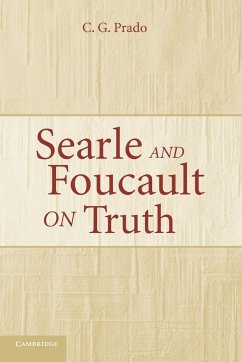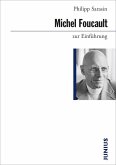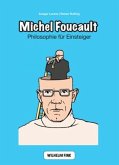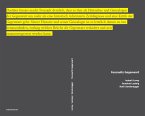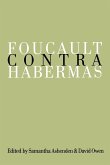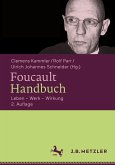This book compares John Searle and Michel Foucault's radically opposed views on truth in order to demonstrate the need for invigorating cross-fertilization between the analytic and Continental philosophical traditions. By pressing beyond familiar clichés about analytic philosophy and postmodernism, a surprising convergence of Searle and Foucault's thought on truth emerge. The analytic impression of Foucault is of a radical relativist whose views on truth entail linguistic idealism. Searle himself has contributed to this impression through his aggressive critique of postmodern thinkers, especially Derrida. Prado lays this misperception to rest, showing analytic philosophers that Foucault's ideas about truth are defensible and merit serious attention, while also demonstrating to Continental philosophers that Searle's cannot be ignored.
Hinweis: Dieser Artikel kann nur an eine deutsche Lieferadresse ausgeliefert werden.
Hinweis: Dieser Artikel kann nur an eine deutsche Lieferadresse ausgeliefert werden.

